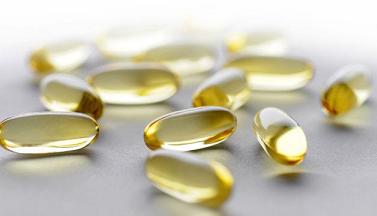 The rate of asthma keeps rising. The fact is that, children’s asthma is continuing to increase at an alarming rate. Environmental pollution and poor eating styles are largely the culprit.
The rate of asthma keeps rising. The fact is that, children’s asthma is continuing to increase at an alarming rate. Environmental pollution and poor eating styles are largely the culprit.
Essential fatty acids in fish and fish oil will restrain the inflammatory chemicals associated with this disease. Research shows that children who eat oily fish more often than once a week have one-third the danger of getting asthma as children who do not eat fish or eat lean fish regularly.
Fish-oil supplements are beneficial for both children and adults with asthma. Again, the key benefits of fish oil take months before the natural anti-inflammatory benefits start to take hold.
 With many studies to back up its benefits, fish oil is usually recommended as a preventative for heart and circulation problems. Together with the population research showing that intake of fish oil lashes the rate of cardiovascular disease, are actually hundreds of scientific studies that support these findings. Fish oils reduce chloresterol and triglyceride levels and also function as a natural blood thinner, which results in the lowering of blood pressure.
With many studies to back up its benefits, fish oil is usually recommended as a preventative for heart and circulation problems. Together with the population research showing that intake of fish oil lashes the rate of cardiovascular disease, are actually hundreds of scientific studies that support these findings. Fish oils reduce chloresterol and triglyceride levels and also function as a natural blood thinner, which results in the lowering of blood pressure.  Many school-age children have already been identified as having ADD or ADHD and their issues are sometimes associated with nutritional imbalances. (Too much sugars and some additives in junk food have particularly been blamed.)
Many school-age children have already been identified as having ADD or ADHD and their issues are sometimes associated with nutritional imbalances. (Too much sugars and some additives in junk food have particularly been blamed.)